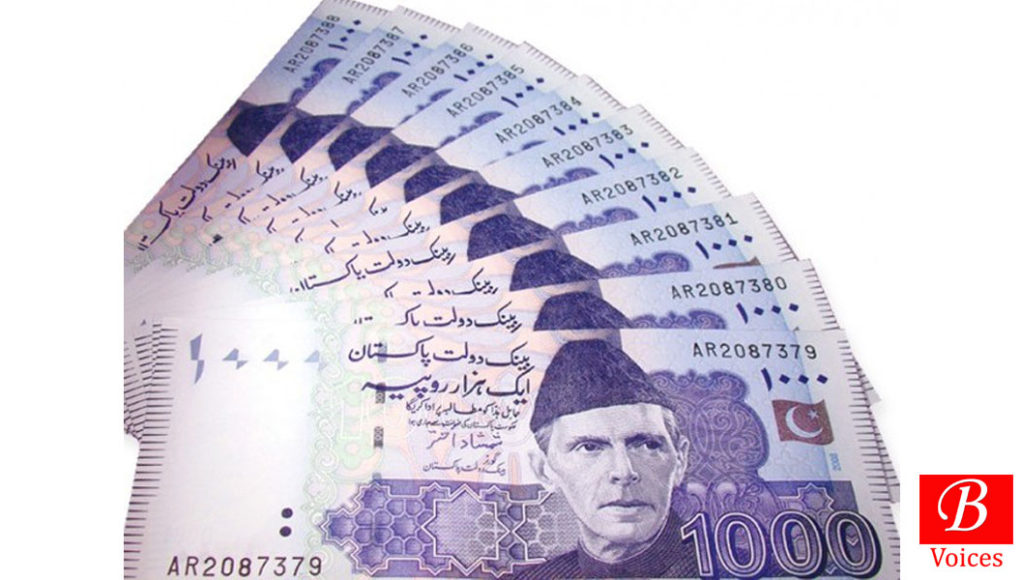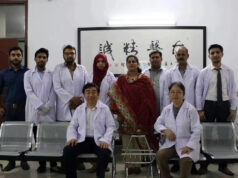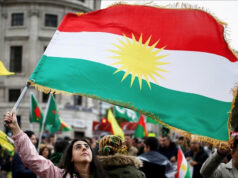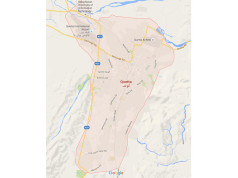Wali Ejaz Nekokara
After World War 2, the war of economies started all over the world. Now, the economy of a country determines its power. Question arises, where we stand in this war of economy? Unfortunately, we don’t seem to be moving forward. The incumbent government promises to turn Pakistan into Asian Tiger.
It is not bad ambition or goal but it hasn’t happened yet. The economy of Pakistan is existing at low level or relative to decline and people are endeavoring to survive. With the help of inconceivable data and illustrative numbers one can establish three points.
First, the state of the economy. The Federal Bureau of Statistics website shows that in 2015 per capita income in current prices was Rs. 153,620 per year or about Rs 13,000 per month which is also meagre amount. This means that if Pakistan’s total yearly income was divided equally among its citizens each person would get Rs 13,000 per month. A household of four would have around Rs 50,000 a month to live on. Add up essential expenditures and it is obvious this is a survival level allocation implying that Pakistan’s economy in aggregate is a survival level economy for its citizens.
Easy available data allows for comparisons with Malaysia and South Korea. Adjusting for purchasing power, the respective yearly income per person in the two countries is five and seven times that of Pakistan. In other words, instead of 50,000 a Pakistani household of four would require Rs 250,000 or Rs 350,000 per month to attain and sustain the average standard of living in Malaysia or South Korea. That is a difference between a survival economy and a prospering one.
To achieve the status of an Asian tiger like South Korea, Pakistan’s income per person needs to multiply seven times. How long would that take? Even if economic rate of growth increases from the existing five percent to seven percent and is sustained year after year, it would take over 25 years to reach where South Korea is today. Getting there in 15 years would require a growth rate of 12pc.
Second, while the Pakistani economy is growing, it is declining relative to most other developing economies. In 1990, India’s per capita income was 40pc lower than that of Pakistan by 2009 it had drawn level; today, it is around 20pc higher. China’s per capita income in 1990 was 50pc less than Pakistan’s; today it is 200pc higher. At these relative rates, Pakistan will soon be defeated this war of economy or disqualified from competition.
Third, if incomes were equally shared and every individual received a monthly income amount of Rs 13,000 the reality of the survival economy would be inescapable. It is masked by a highly unequal income distribution, so unequal that half the total national income goes to just the richest 20pc of households. A recent news report discussing stipends or salaries of bank CEOs revealed that Rs 5 million per month was not an outlier. With some individuals living at first world elite levels, it follows there must be others living below the average in order to keep the total income constant. In fact, the majority of individuals in Pakistan have monthly allocations well below the survival level of Rs 13,000. Given the extreme inequality, independent estimates suggest that over half the individuals in country could be considered as vulnerable in the sense that any unforeseen expense can plunge them into poverty.
How do individuals exist at this level of deprivation? By being poorly educated, in pathetic situation of health, increasingly indebted, and overworked because of dependence on multiple jobs. Care to follow the story of someone earning the minimum monthly wage of Rs 13000 and you will appreciate the real state of the Pakistani economy. I saw many people who were saying that “CPEC” can extricate us from economic decline and they recite CPEC all time as a mantra. They have to know that CPEC will contribute 2.5pc to the rate of growth of national income.
So excessive dependence on CPEC, China and people’s deprivations of basic needs are hindrances in the way of achievement. Secondly, aloofness from education is another factor. In education, we have reached our nadir. Economic growth and education are inextricably linked with each other. An American politician Bobby Scott beautifully described that “It is virtually impossible to compete in today’s global economy without a college degree.”
Writer is a Student of BS Political Science at Quaid e Azam University Islamabad
Disclaimer: Views expressed in this article are those of the author and Balochistan Voices not necessarily agrees with them.
Share your comments!








